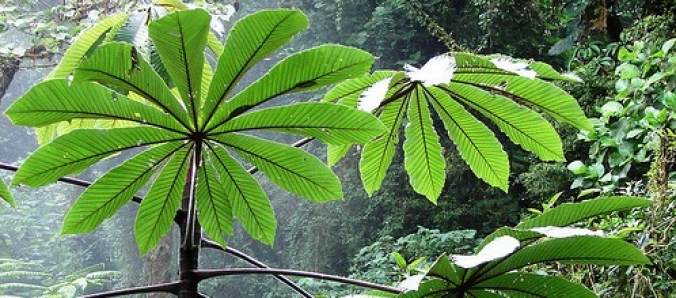Estudo da Unidade de Depressão em parceria com a Universidade Federal de Santa Catarina

Um estudo recente realizado pela unidade de pesquisa em depressão do laboratório de Neurociências da UNESC em parceria com o Programa de Pós-graduação em Farmácia da UFSC demonstrou que extratos enriquecidos de folhas da planta Cecropia pachystachya, conhecida popularmente como embaúba apresentou um efeito antidepressivo em roedores submetidos a um modelo animal de depressão. Além disso, o extrato da planta também apresentou um efeito neuroprotetor. O estudo também contou com a participação do Laboratório de Bienergética da UNESC e de Fisiopatologia Clínica e Experimental da UNISUL.
Neurotox Res. 2016 Jan 13.
Enriched Flavonoid Fraction from Cecropia pachystachya Trécul Leaves Exerts Antidepressant-like Behavior and Protects Brain Against Oxidative Stress in Rats Subjected to Chronic Mild Stress.
Ortmann CF, Réus GZ, Ignácio ZM, Abelaira HM, Titus SE, de Carvalho P, Arent CO, Dos Santos MA, Matias BI, Martins MM, de Campos AM, Petronilho F, Teixeira LJ, Morais MO, Streck EL, Quevedo J, Reginatto FH.
Abstract
The purpose of this study was to assess the effect of an enriched C-glycosyl flavonoids fraction (EFF-Cp) from Cecropia Pachystachya leaves on behavior, mitochondrial chain function, and oxidative balance in the brain of rats subjected to chronic mild stress. Male Wistar rats were divided into experimental groups (saline/no stress, saline/stress, EFF-Cp/no stress, and EFF-Cp/stress). ECM groups were submitted to stress for 40 days. On the 35th ECM day, EFF-Cp (50 mg/kg) or saline was administrated and the treatments lasted until the 42nd day. On the 41st and 42nd days, the animals were submitted to the splash test and the forced swim test. After these behavioral tests, the enzymatic activity of mitochondrial chain complexes and oxidative stress were analyzed. EFF-Cp reversed the depressive-like behavior induced by ECM. It also reversed the increase in thiobarbituric acid reactive species, myeloperoxidase activity, and nitrite/nitrate concentrations in some brain regions. The reduced activities of the antioxidants superoxide dismutase and catalase in some brain regions were also reversed by EFF-Cp. The most pronounced effect of EFF-Cp on mitochondrial complexes was an increase in complex IV activity in all studied regions. Thus, it is can be concluded that EFF-Cp exerts an antidepressant-like effect and that oxidative balance may be an important physiological process underlying these effects.
Mais informações: http://www.ncbi.nlm.nih.gov/pubmed/26762362
23 de fevereiro de 2016 às 09:46
 Newsletter
Newsletter  RSS
RSS